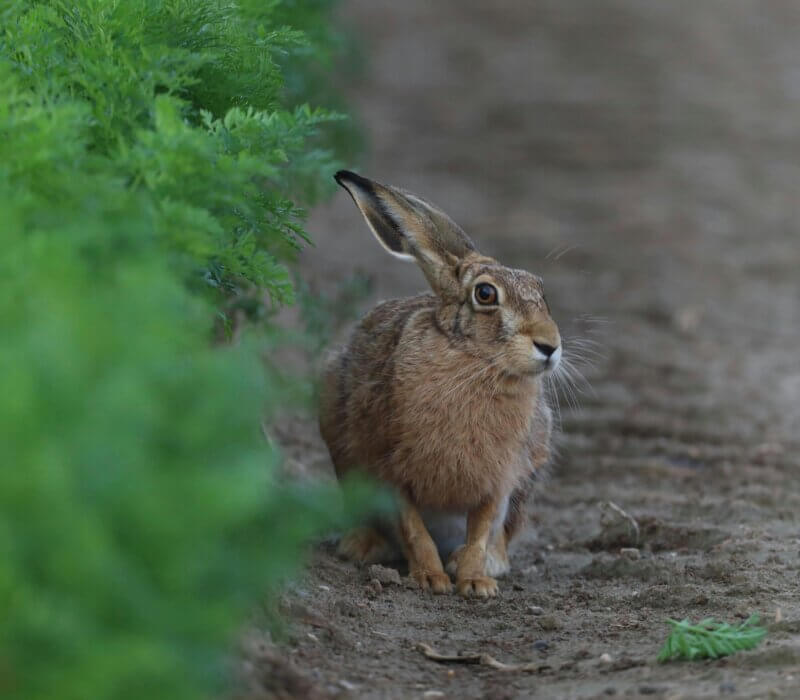Mandsaur Forest Division Books Three Men for Hunting a Hare, Following PETA India Complaint
Following a report by Deepak Bishnoi, the Barmer district secretary of the Aam Aadmi Party, regarding the illegal hunting of a hare, a species protected under Schedule II of the Wild Life (Protection) Act (WPA), 1972, PETA India worked with the Mandsaur forest division of the Madhya Pradesh Forest Department to register a preliminary offence report (POR) against the alleged perpetrators. One of the accused, Govind Singh, had uploaded a video to his Instagram profile which showed the hunted hare being transported upside down on a bike with two other individuals on it, one of whom appears to be holding a firearm. In another video, one of the accused is seen skinning the hare.
The POR was registered against Singh and the two unnamed suspects under sections 2 and 9 of the WPA, 1972. Hunting this species is an offence punishable by a fine of up to Rs 1 lakh or a jail term of up to three years – or both. Singh is said to be absconding, and the forest department is on the lookout for him and the others. PETA India has urged the forest department to include the relevant provisions of the Arms Act, 1959; the Bharatiya Nyaya Sanhita, 2023; and The Prevention of Cruelty to Animals Act, 1960, in the charges.
PETA India recommends that perpetrators of animal abuse undergo psychiatric evaluation and receive counselling, as abusing animals indicates a deep psychological disturbance. Research shows that people who commit acts of cruelty to animals are often repeat offenders who move on to hurting other animals, including humans. A study published in the Forensic Research & Criminology International Journal stated, “Those who engage in animal cruelty were [three] times more likely to commit other crimes, including murder, rape, robbery, assault, harassment, threats, and drug/substance abuse.”
Help Us Strengthen Penalties Against Animal Abusers Things to Do When You Witness Cruelty to Animals








